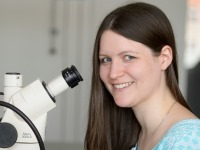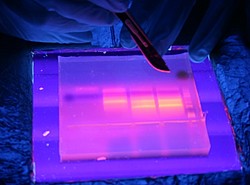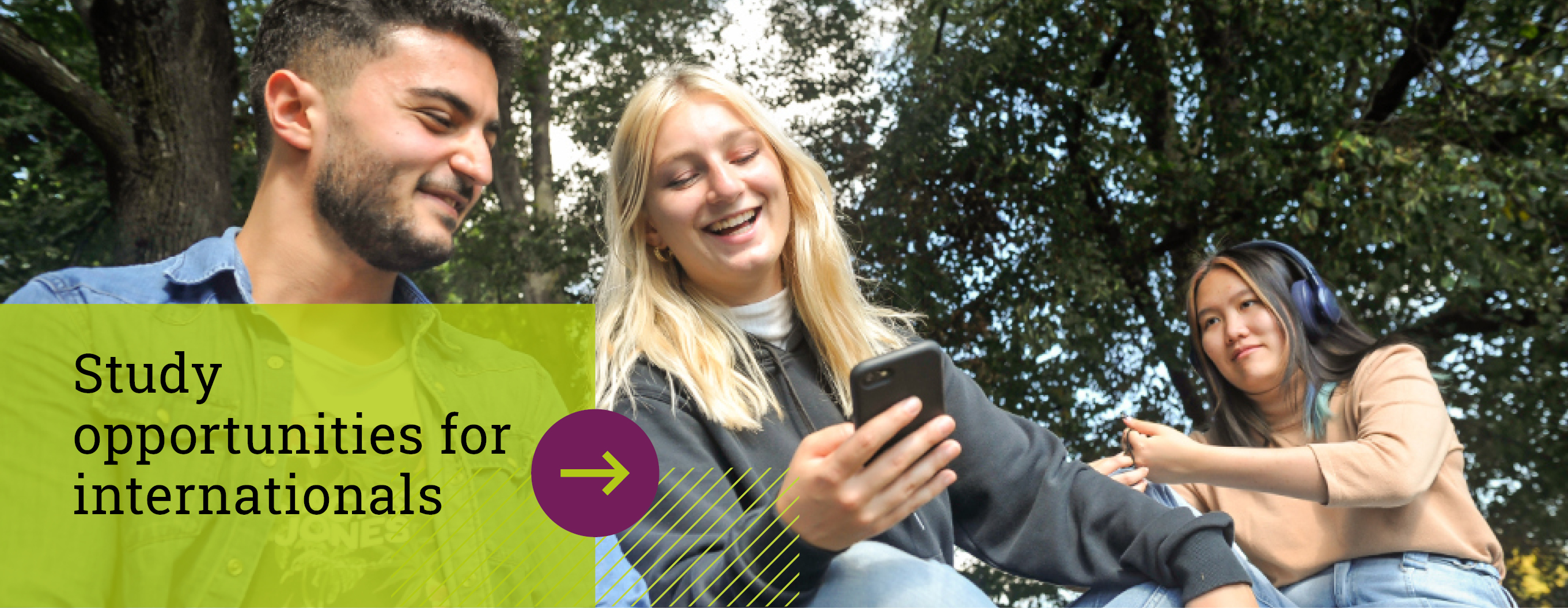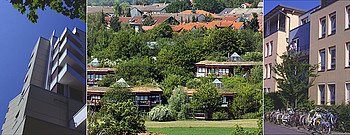Biology (Master’s)
Study Life!
Biology (Master’s)
Study Life!
With the Master’s degree in Biology at the University of Hohenheim, you can expect a research-oriented degree program in which you determine the content of your studies yourself. You can specialize and focus on one of the profiles on offer. Alternatively, you can take part in the modules of as many biology departments as possible.
- A course of study that you can design entirely according to your interests.
- Excellent supervision ratio due to small cohorts
- Possibility to specialize by choosing one of our 3 profiles.
- Both German and English language modules
- Linking theory and practical research
- Reasons to choose Hohenheim
| Degree Master of Science (M.Sc.) |
4 semesters 120 credits |
Language German |
University places 30 |
Location Stuttgart |
|||||
In the first academic year,
you choose from a wide range of compulsory elective modules that reflect the diverse research topics of the participating biological departments. By choosing certain modules, you can deepen your knowledge in the following subject areas:
- Evolution, ecology, and biodiversity
- Signal processing and metabolism
- Development, health, and pathology
Of course, you can also set your own specializations or take advantage of the courses offered by the various biology departments.
The elective area also gives you the opportunity to look beyond the boundaries of biology and take a module from the entire range of programs offered by the university.
You can find information about the individual modules in the module catalog.
In the second academic year, the research module enables you to gain experience in dealing with scientific issues. You will be supported by researchers in the respective department when writing your thesis. You can choose whether you would like to complete your work at one of the many biology departments or at a scientific institution outside the university or even abroad. This will give you excellent preparation for the final experimental Master’s thesis.
In addition to this, our institutions will be happy to support you in developing your personal skills such as body language, willingness to learn, or communication as part of the personal skills module.
You want to know more?
Detailed information about the course and structure of the degree program can be downloaded here:
Study objectives
As a “Hohenheim biologist” you will be able to:
- work independently on challenging scientific questions, present and discuss the results and, if necessary, publish them
- bring the scientific findings of your research work closer to a (non-)specialist audience.
- carry out challenging and, in a scientific sense, new, as yet unknown methods, improve existing methods, and develop new methods
Angela Prager (Student, Master’s program Biology)

"Practical teaching and excellent research opportunities make the historic campus of the University of Hohenheim the perfect place to study biology."
Where could you go from here?
After completing your studies, you will have a wide range of opportunities in project management and management positions in...
- basic biomedical research,
- research and development, e.g. in the pharmaceutical sector and food industries,
- public research institutes at the federal and state levels,
- botanical and zoological gardens,
- environmental research / conservation
- business consulting firms
- natural history museums
- …
- Excellent supervision due to small cohorts
- Research-oriented study programs
- Connection of research and practical work
- Superb laboratories and internship facilities with equipped cutting-edge technology
- The opportunity to choose from the entire range of courses offered at the Faculty of Natural Sciences of the University of Hohenheim

The Biology program is closely intertwined with current research projects in the departments of the Institute of Biology. Within the university, biology has a strong relationship with other disciplines; special attention is given to our collaborations with the Institute of Food Science and Biotechnology, as well as the nutritional science institutes (Nutritional Sciences & Clinical Nutrition). In addition, we also cooperate with the agricultural and economic sciences. With our expertise in the sub-disciplines of botany, zoology, animal physiology, genetics, microbiology, plant physiology, molecular biology, biochemistry as well as systems biology, we cover a wide range within biology. In addition, we are expanding our expertise in biology with the appointment of new professorships in biodiversity research and integrative taxonomy.
Core research areas
- Biodiversity and Integrative Taxonomy
- Biomolecular Interactions
- Adaptation of Plants to their Environment
- Interaction Plants/Insects
Cooperation agreements
With the aim of further expanding our successful research projects and achieving sustainable synergy effects, we maintain intensive cooperation with our excellent partners:
- University of Stuttgart
- University of Tübingen
- Stuttgart Museum of Natural Science
- State Health Office of Baden-Württemberg
- Margarete Fischer-Bosch Institute for Clinical Pharmacology at the Robert Bosch Hospital
- National and international research institutions.
| Application deadlines | |
|---|---|
| 1st subject-related semester | only for the winter semester: 15 June Germans, EU citizens, holders of a German university entrance qualification (Bildungsinländer), and non-EU citizens |
Higher subject-related semesters | for the winter semester: 15 June |
| Requirements | |
|---|---|
| Formal requirements | Bachelor's degree with biological or natural science profile (min. 180 credits) |
| Content criteria | Interested in
|
| Language skills | German C1 English B2 |
| Pre-study internship | no |
| Selection procedure | |
|---|---|
| Selection criteria |
|
| Selection interview | no |








